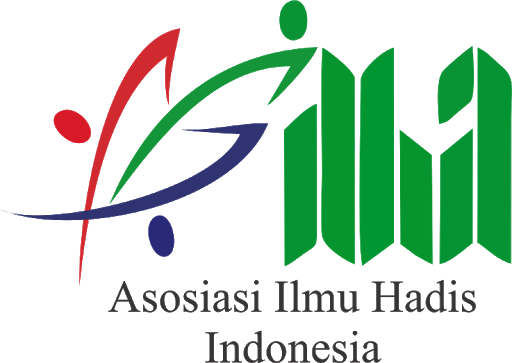FUNGSI PENGAJIAN DAN MUJĀHADAH KAMIS WAGE BAGI KOMUNITAS PESANTREN SUNAN PANDANARAN, SLEMAN, YOGYAKARTA
DOI:
https://doi.org/10.14421/livinghadis.2016.1068Keywords:
sistem Mujāhadah, paradigma fungsional- isme, struktur wiridAbstract
This article is part of anthropological research about Mujāhadah Kemis Wage in Pesantren Sunan Pandanaran, Sleman Regency, Yogyakarta. Having used participatory technic, interview, observation, as well as documentation data, this research benefited fungsionalisme Bronislaw Malinowski theory for both descripting and analyzing the data. Part of research result are the form of Mujāhadah kamis wage that consist of: (1) khatm al-Qur’ān (2) khatm al- Qur’ān prayer, (3) theological sermons, (4) recitation of asmaul husna, (5) recitation of ratībul ḥaddād, (6) recitation of ‘ibādallah, (7) as well commemoration of ṣalawat during public endorsing. While according to fungcionalism point of view, this public ritual congregation entails several functions spread from religious dimension, to education, socio-political, up to sectarian ideology.
 Abstract viewed: 1965 times
|
Abstract viewed: 1965 times
|
 PDF downloaded = 1853 times
PDF downloaded = 1853 times
References
Ahimsa-Putra, Heddy Shri, “Fenomenologi Agama: Pendekatan Fenomenologi untuk Memahami Agama”, Jurnal Penelitian Walisongo, Vol. XVII, No. 2, November 2009.
____, “Paradigma Ilmu Sosial-Budaya: Sebuah Pandangan”, Makalah, disampaikan pada Kuliah Umum “Paradigma Penelitian Ilmu-ilmu Humaniora”, diselenggarakan oleh Program Studi Linguistik, sekolah Pascasarjana, Universitas Pendidikan Indonesia, Bandung, pada tanggal 7 Desember 2009.
____, “Budaya Bangsa, Jati Diri, dan Integrasi nasional: Sebuah Teori”, Jurnal Sejarah dan Nilai Budaya, Edisi Perdana, Tahun I, 2013.
Anas, Malik bin, Al-Muwaṭṭa’, Mesir: Dar Ihya’ al-Turaṡ al-‘Arabi, t.t. Anonim, Profil Pondok Pesantren Sunan Pandanaran Yogyakarta 2014, (Tidak Dipubilaksikan).
Baihaqi, Abu Bakr Ahmad bin al-Husain al-, Syu’b al-Imān, Beirut: dār al-Kutb al-‘Ilmiyyah, 1410 H.
Hadromi, Habib Ali bin Hasan Abdullah bin Husain bin Umar al-Atas Baalawi al- Al-Qirṭās, Syarḥ Raṭīb al-Aṭās, Jakarta: Darul Ulum Press, 2003.
Koentjaraningrat, Sejarah Teori Antropologi I, Jakarta: UI-Press, 1987.
Malinowski, Bronislaw, A Scientific Theory of Culture and Others Essay, New York: Oxford University Press, 1960.
____, Argonauts of the Western Pacific: An Account of Native Enterprise and Adventure in the Archipelagoes of Melanesian New Quinea, London: Routledge, 2002.
Marzali, Amri, “Struktural-Fungsionalisme”, Antropologi Indonesia, Vol. 30, No. 2, 2006.
Pranowo, M. Bambang, Memahami Islam Jawa, Jakarta: Pustaka Alvabet, 2011.
Razi, Muhammad Fakhr al-Din al-, Mafatih al-Gaib, Beirut: dar al-Fikr, 1981.
Rekaman Kuliah Teori Budaya bersama Heddy Shri Ahimsa-Putra pada tanggal 03 November 2014 di Pascasarjana UIN Sunan Kalijaga, Yogyakarta. Suara Pandanaran: Majalah Pesantren, Edisi 11-14, 2013-2015.
Soehadha, Moh., “Teori Fungsionalisme B. Malinowski dan Implikasinya terhadap Studi Agama-agama”, Religi, Vol. IV, No. 1, Januari 2005. Tim PPSPA, Buku Induk Daftar Santri PPSPA 2015 (Tidak Diterbitkan).
Yahya, Mohamad, “Tarbiyah al-Diniyyah Model Pribumisasi Islam”, Suara Pandanaran: Majalah Pesantren, Edisi 10 Januari 2013.
Yahya, Tohir Husain, Mutiara Ratibul Athas, Semarang: PT. Tanjung Mas Inti, 2007.
Downloads
Published
Issue
Section
License
- Authors who publish with this journal agree to the following terms:
- Authors retain copyright and grant the journal right of first publication with the work simultaneously licensed under a Creative Commons Attribution License that allows others to share the work with an acknowledgement of the work's authorship and initial publication in this journal.
- Authors are able to enter into separate, additional contractual arrangements for the non-exclusive distribution of the journal's published version of the work (e.g., post it to an institutional repository or publish it in a book), with an acknowledgement of its initial publication in this journal.
- Authors are permitted and encouraged to post their work online (e.g., in institutional repositories or on their website) prior to and during the submission process, as it can lead to productive exchanges, as well as earlier and greater citation of published work.
















